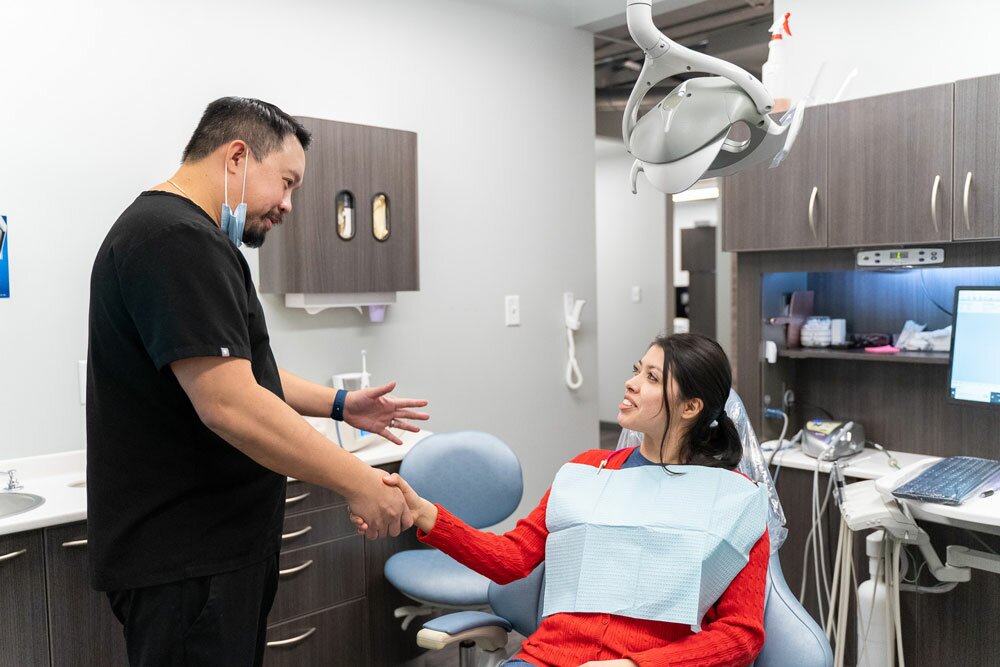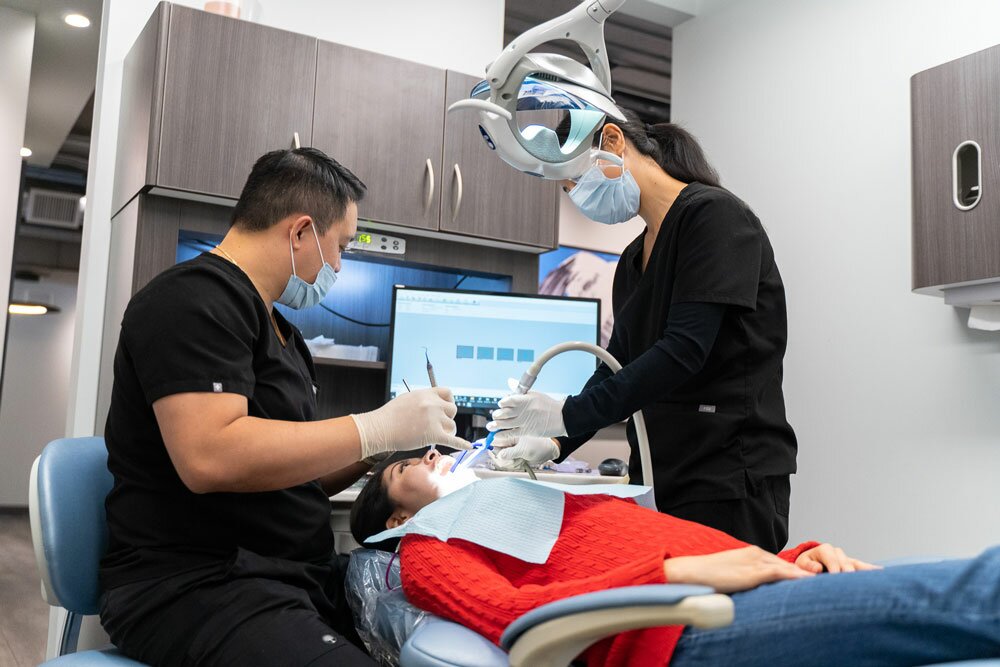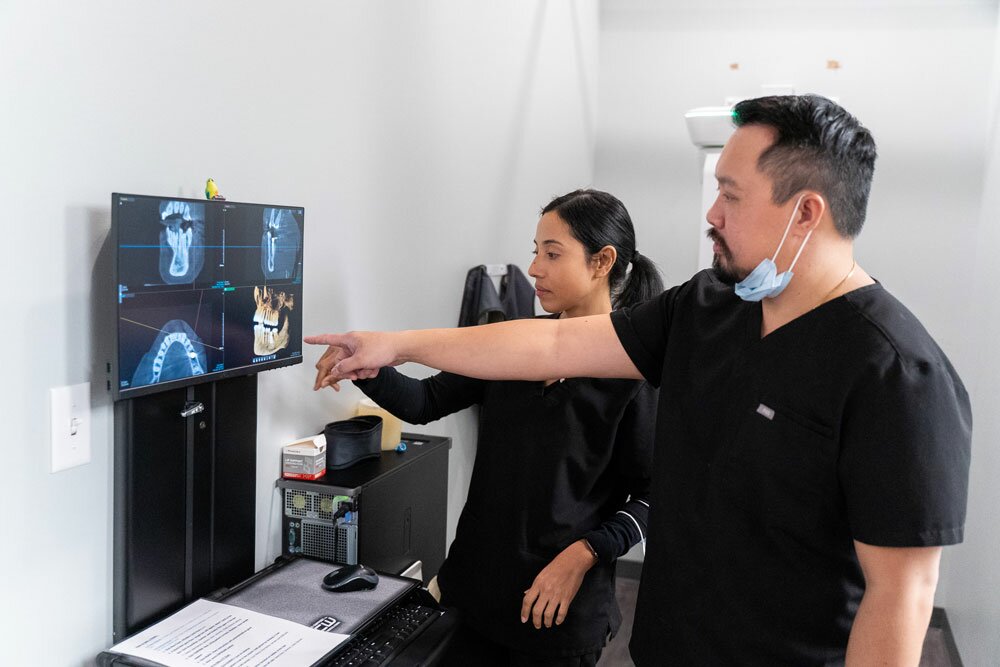Oral surgery is a branch of dentistry that deals with the treatment of conditions, diseases, and injuries of the mouth, jaws, and face. At Discover Dental, we offer a comprehensive suite of oral surgeries, including tooth removal, wisdom tooth extraction, and dental implants. We will thoroughly assess your individual needs and develop a personalized treatment plan. Our skilled and compassionate team will work with you to ensure that you are as comfortable as possible during your treatment.
Standard Tooth Extraction
A tooth extraction is the removal of a tooth from the mouth. Extractions are performed for a variety of reasons, but most commonly, to remove teeth that are decayed, infected, or damaged beyond repair. Tooth extractions are a relatively simple procedure. The dentist will numb the area around the tooth using local anesthesia, following which the tooth will be loosened using a tool called an elevator and then removed with forceps.
There are many reasons why someone might need to have a tooth extracted. The most common reason is due to decay. When a tooth is severely decayed, it can be impossible to save with a filling. In this case, an extraction is necessary to prevent the decay from spreading to other teeth. Other reasons for extraction include impacted teeth, overcrowded teeth, improperly positioned teeth, impacted teeth, or severely broken or fractured teeth.
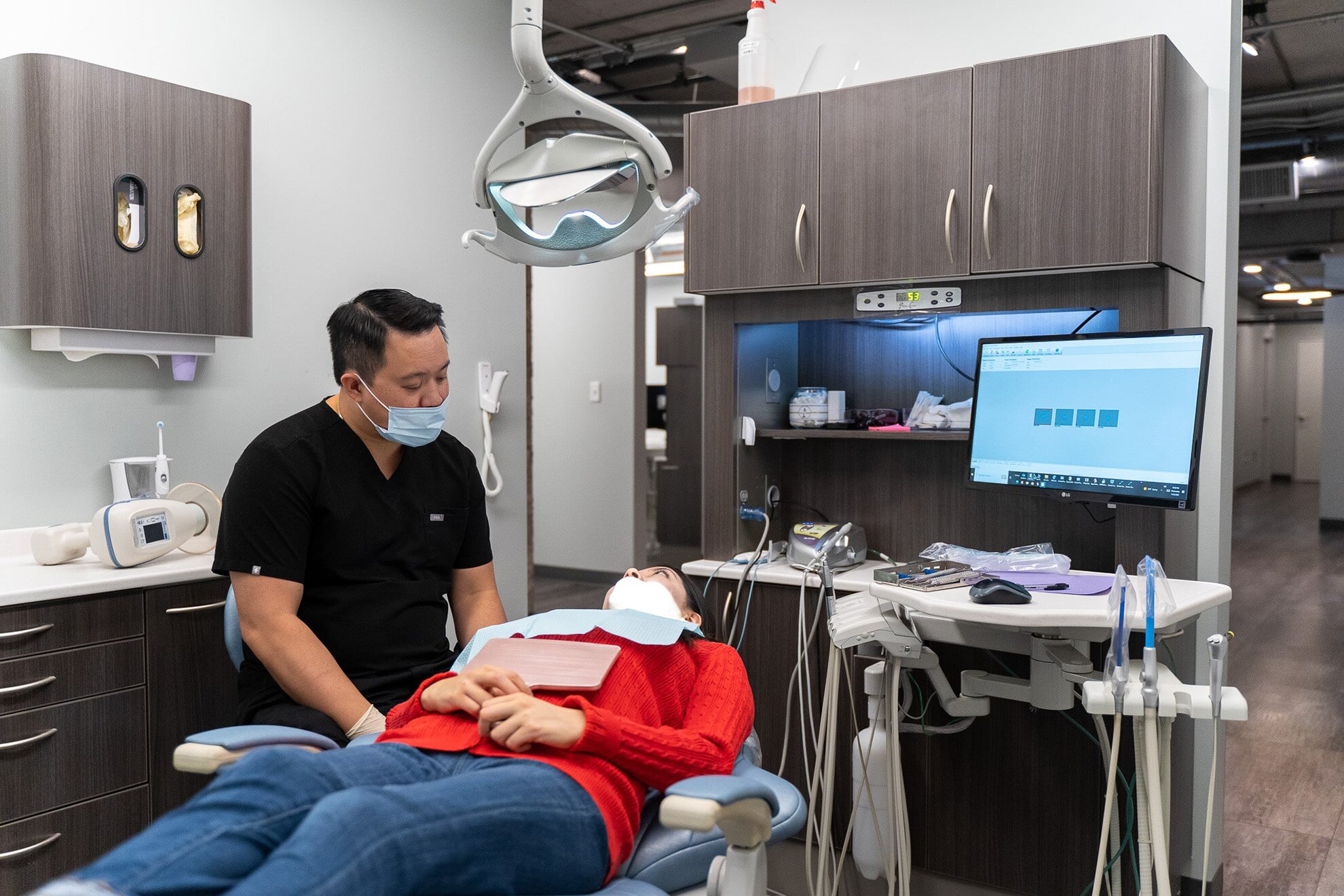
Are you suffering from advanced tooth decay? You may need a tooth extraction. Schedule your appointment now.
Wisdom Teeth Removal
Most people have four wisdom teeth, which are the last teeth to come in. Wisdom teeth usually come in between the ages of 17 and 25. Sometimes, they come in without any problems. But often, they come in crooked or only partly come in. When this happens, they can crowd other teeth or grow sideways into the cheek. They may also get stuck under the gum and become impacted. Wisdom teeth that are causing problems need to be removed.
Wisdom teeth removal is usually an outpatient procedure, which means you can go home the same day. The surgery usually takes about an hour. You will be given local anesthesia to numb the area around the tooth, and you may also be given sedation to help you relax. The surgeon will make an incision in the gum tissue to expose the tooth and bone. The tooth will be removed, and the incision will be closed.
Are your wisdom teeth erupting and causing you excruciating pain? Speak to our dentist to see if a wisdom tooth extraction is right for you.
Single Dental Implants
A dental implant is a metal post surgically placed into the jawbone. Once the implant has bonded to the jawbone, a small connector piece called an abutment is placed on top of the implant. The abutment is then used to hold a replacement tooth, called a crown. Dental implants are an ideal option for people who are missing one or more teeth. Implants look and feel like natural teeth, and they allow people to eat and speak without difficulty.
Single dental implants are a popular choice for people who are looking to replace one or more missing teeth. A single dental implant involves using one implant and one crown to replace the missing tooth. One of the benefits of single dental implants is that they look and feel just like natural teeth. Since they are attached directly to the jawbone, single dental implants are more stable and less likely to experience decay.
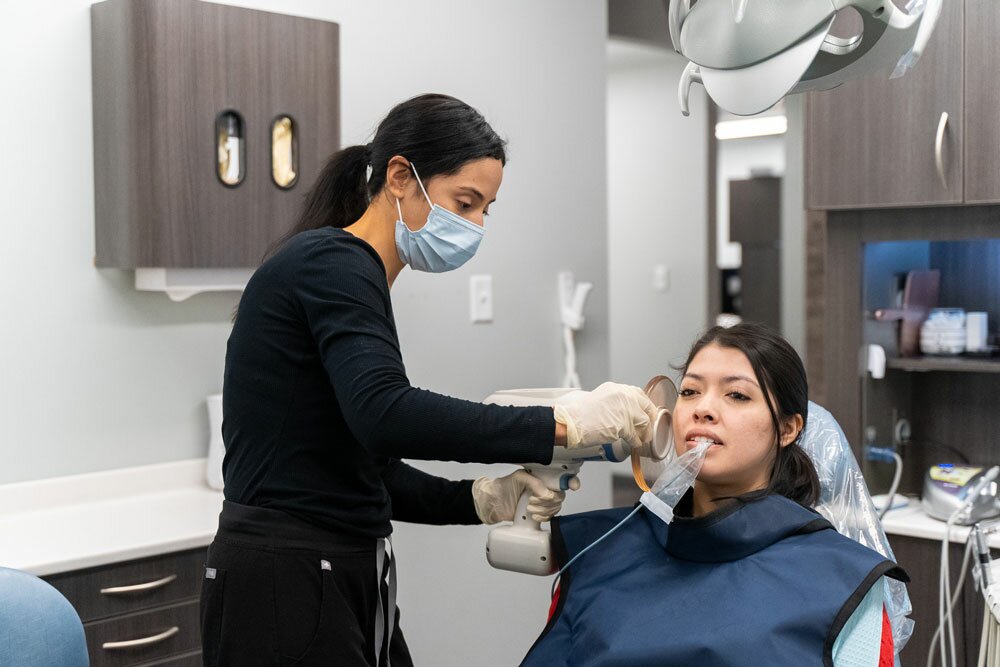
Do you have a missing tooth? Let us help you restore your smile. Call us now.
Full Arch Dental Implants
Full-arch dental implants are meant for people missing all of their teeth. If you’re missing all of your teeth, the dentist can attach four to six implants in strategic locations on your jawbone. After the healing process, the implants can support a complete denture, which can replace all of your missing teeth simultaneously. As such, if you’re missing all of your teeth, you don’t need 10+ implants for each tooth — four or six are enough.
There are many advantages of full-arch dental implants over removable dentures. Implants are much more stable than dentures, so you can eat and drink whatever you want without worrying about your teeth slipping or falling out. Dental implants look and feel more natural than dentures and can preserve your natural bone and gum tissue. Finally, implants can improve your overall oral health by preventing bone loss and gum disease.
Are you missing several teeth? Speak to our dentist about dental implants. Schedule now.
Oral Surgery FAQs
Who performs dental extractions?
Dental extractions are most commonly performed by dentists and oral surgeons. Dentists receive training in dental school on how to perform various types of extractions. Some simple extractions can be performed by general dentists, while more complicated extractions are typically referred to oral surgeons.
Will my insurance cover my tooth extraction?
The answer to this question depends on your specific insurance plan. Most insurance plans will cover at least a portion of the cost of a tooth extraction, but there may be some limitations. It’s always a good idea to check with your insurance provider before scheduling any dental procedure to be sure of your coverage.
What should we not do after tooth extraction?
After tooth extraction, it is important to follow the dentist’s instructions for care. This will help promote healing and prevent complications. There are a few things that should be avoided after tooth extraction, including:
- Drinking through a straw
- Smoking
- Doing vigorous exercise
- Touching the extraction site
All of these activities can disrupt the clot that forms at the extraction site and lead to bleeding or infection. Therefore, it is best to take things easy after having a tooth pulled and to avoid any activities that could jeopardize your recovery.
How long does oral surgery take?
When it comes to oral surgery, the length of the procedure can vary depending on the specific type of surgery and the individual patient’s needs. In general, most oral surgeries can be completed within one to two hours. However, more complex surgeries or those requiring multiple procedures may take longer. Factors that can affect the duration of oral surgery include the complexity of the procedure, the patient’s overall health and medical history, the skill and experience of the surgeon and the type of anesthesia used. It’s important to note that while the length of the surgery is a consideration, what’s even more crucial is the quality of care and attention given to each patient. A skilled oral surgeon will prioritize patient comfort, safety, and successful outcomes over rushing through a procedure. If you’re considering oral surgery, it’s best to consult with our trusted oral surgeon at Houston to discuss your specific needs and concerns. We can provide you with a more accurate estimate of the length of your surgery and answer any questions you may have. Book your appointment now!
How much does oral surgery cost?
Oral surgery costs depend on the type of procedure, surgeon’s experience, and location. Insurance plans may cover some or all of the cost, and financing options are available. Schedule an appointment our dental clinic to discuss your specific procedure and associated costs. Our oral surgeon can provide you with an estimate and payment options. Book now!
How long does it take to feel better after oral surgery?
Recovery time after oral surgery varies depending on the type of procedure. For simple extractions, it can take a few days to a week to feel better. For more complex procedures like dental implants, it can take several weeks to several months to fully recover. Our oral surgeon in Houston can provide you with specific post-operative instructions to help speed up the healing process. Book your appointment now to achieve a much healthier smile!
How long does it take to heal from oral surgery?
The recovery period after oral surgery varies depending on the type of procedure performed. Generally, it takes about one to two weeks for complete healing. During this time, you should follow the post-operative instructions given by your oral surgeon carefully including taking any prescribed medication, avoiding certain foods and activities and keeping the surgical site clean. Pain, swelling, and bruising are common after oral surgery, but they should subside gradually over time. If you experience any severe pain or unusual symptoms, contact our oral surgeon in Houston immediately. Book your appointment with us today for a brilliant and healthier smile!
Schedule Your Oral Surgery in Houston
If you’re in need of oral surgery, the team at Discover Dental is here to help. The thought of undergoing surgery can be daunting, but we do everything possible to ensure the process is smooth and stress-free. Our oral surgeon works diligently to ensure that you receive the best possible care. If you have any questions, please don’t hesitate to schedule an appointment — you can find our dental clinic at 1111 Studewood Street, Suite C, Houston, TX 77008.

